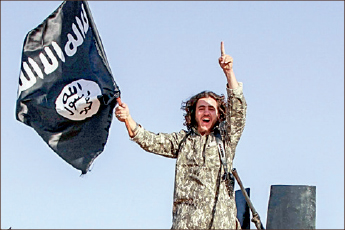Why despicable acts of terrorism should be met with abounding prayer
As I think about the thousands of people who file into worship centers every week, lifting their hands in worship to songs like “How Great is our God,” I cannot help but imagine what it would be like to hear or read those very words, much less sing them, as an Arab Christian right now.
Then my thought progressed a bit further. You see, as a Christian, I hear “How Great is Our God,” and I immediately think of the greatness of God’s grace. However, when a non-Christian hears those same words, maybe he or she wonders if God really is great. Or maybe he or she considers God’s greatness to be his wrath. For the Christian, God’s grace has totally eclipsed that wrath. For the non-Christian, God’s wrath has wholly eclipsed that grace.
Naturally, after thinking through all of these things, I felt a sense of urgency to share the gospel with those non-Christians. But, I have to wonder, would I feel that same sense of urgency to share the gospel with those non-Christians who are beheading journalists, the Islamic State radicals who are orphaning Iraqi and Syrian Christians and threatening genocide? If I am honest, often, my only wish is for them to experience the greatness of God’s wrath. After all, they are terrorizing Christians and other minorities in horrendous and unspeakable ways.
“I used to believe that I ought to do everything I could to oppose the followers of Jesus. I caused many of the believers in Jerusalem to be sent to prison.”
These are the words the Apostle Paul wrote in Acts 26:9-11 (NLT). Paul, whom many Christians revere as the greatest Jesus follower to ever live, once hated Christians. His testimony challenged my thinking.
“I cast my vote against (Christians) when they were condemned to death,” Paul wrote. “Many times I had them whipped in the synagogues to try to get them to curse Christ. I was so violently opposed to them that I even hounded them in distant cities of foreign lands.”
Even at the onset of Paul’s journey to Damascus — where his heart was changed — his greatest desire was to see Christians persecuted, much like members of the Islamic State today.
Paul’s story of conversion answered my questions as to why such despicable evil should be met with inexplicable love.
In his conversion to Christianity, the gospel spread like wildfire. Enemies of Jesus hated him. Paul was hunted down and chained for his faith. But it was when he was in chains that he wrote the letters to Philemon and the churches at Colossae, Ephesus and Philippi.
“Everything that has happened to me here has helped spread the Good News,” Paul wrote in Philippians 1:12, 14 (NLT). “Because of my imprisonment, most of the believers here have gained confidence and boldly speak God’s message without fear.”
God’s greatness is best showcased when the worst of all come to faith in Jesus. This is why Paul’s message resonates so deeply with Christians. The Bible calls believers to pray for their enemies — those who drive the marginalized into the mountains, execute them in the name of religion and displace Arab minorities. It may have been those very prayers for the enemies of Jesus that set the trajectory for Paul’s conversion.
Western Christians often forget the power prayer has over their enemies. What if one of the current terrorists was a future Paul? The reaction to the gospel in the Arab world is vastly different from its reception in the West.
“Satan reacts to the growing presence of God,” Nik Ripken, a missionary to the Middle East, said in a talk on foreign missions. “This whole culture says when the persecution comes, you do two things: stop the persecution and punish the persecutor. But what if the number one cause of persecution on the planet is people
coming to Jesus?”
In the midst of the persecution, in the midst of the suffering, we must hold fast to the truths of the gospel. After all, what if a modern-day jihadist were to have a biblical conversion like Paul on the road to Damascus?
GOINS-PHILLIPS is the opinion editor.
